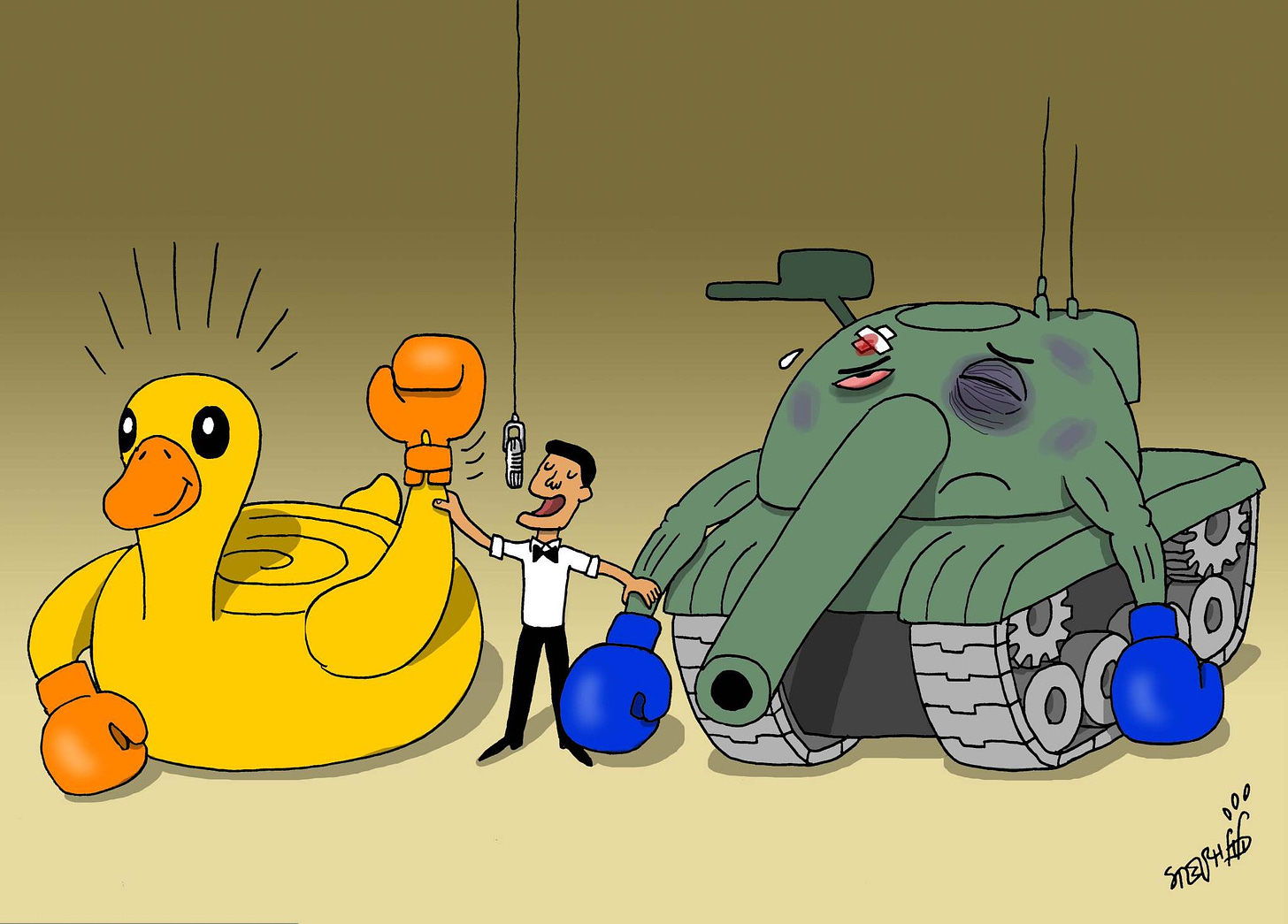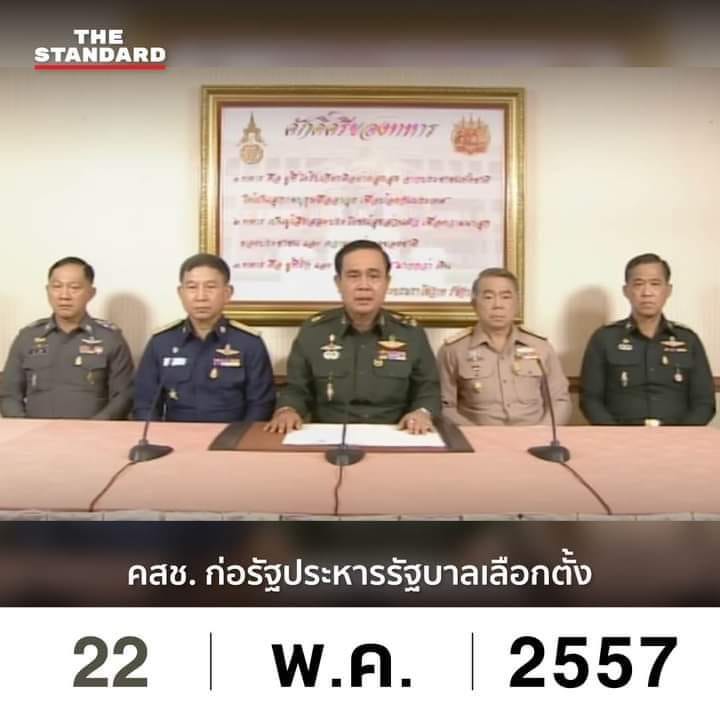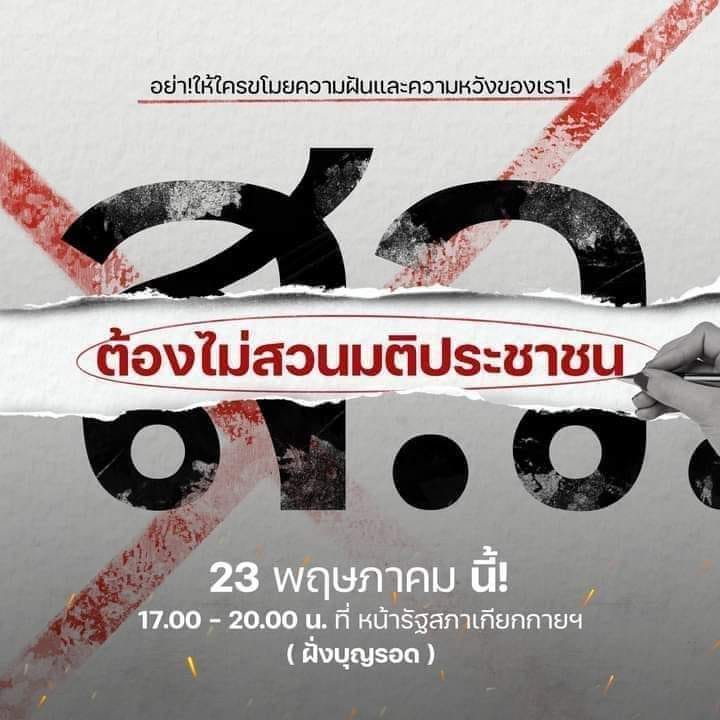There have been 14 military coups in Thailand since the April 1 1932 Siamese coup d’état that brought about a constitutional monarchy. Since then, the Thai miliary has played a major role in the nation’s politics.
Despite the regular nature of coups, the supreme military leader, General Narongpan Jitkaewthae has gone on public record promising the armed forces will not stage any coups, and leave it to the civilian politicians to select the next government.
However, over the last 24 hours around knowledgeable circles in Bangkok, there is talk about another possible coup. Such a warning was posted in the Bangkok Post on May 21.
The programme director from policies and development strategy at the National Institute of Development Administration (Nida) Phichai Ratnatilaka speculated that a military coup is a distinct possibility, if the Move Forward Party (MFP) leader Pita Limjaroenrat is unable to form a government.
Pita has stitched together 314 MPs to form a new government coalition. However, he is still short of the 376 votes needed to be selected as the next prime minister and form a government. Pita is appealing for senators to defect across and support the MFP coalition.
In Thailand, the prime minister is selected through a joint vote by the lower house of parliament, which is composed of 500 elected members, and the senate, which is composed of 250 appointed senators, by the military.
Pita may have a majority in the lower house, but still lacks 66 votes from either additional MPs, sitting in the lower house, and/or appointed senators.
The incumbent government, with the support of 25 Democrat MPs, can only muster 181 votes. However, with the support of the block of 250 senators, it could muster 431 votes. Although this gives the incumbent government enough votes to select their prime ministerial candidate, with only 181 MPs in the lower house, any legislation initiated by the government would be defeated by the opposition.
Pita’s MFP policies seen as too radical for the establishment. However, the coalition MOU signed on May 22 didn’t mention any reforms to the Section 112 of the Criminal Code regarding Lese Majeste, to try and gain support of some senate members.
In the event of no coalition being able to muster the votes needed to select a new prime minister, the government will be in a state of limbo, unless some other recombination of parties occurs.
This vacuum in government may force the military to step in and takeover government. The military may initially step back to wait and see if any compromises can be achieved, but the longer any impasse continues, the more likelihood of the military stepping in.
To some extent this problem is occurring because of the very nature of the 2017 military backed constitution. The requirement for senators to participate in the vote for prime minister leads to situations like the one occurring now. This arrangement was inserted into the constitution in order for the military to perpetuate influence upon the political process. In practice, the provision of a bicameral vote for prime minister adds great complexities to the political process, particularly with the formation of new governments.
However, there is some motivation for the military to take control of the government once again, even though there is great reluctance within some sections. Another military coup would protect the establishment from what they see as a radical populas government, and also clean out those who served in the incumbent government, with a long record of corruption and mismanagement.
There are three signs to look out for if there was going to be any coup on the cards.
1. The politicians from both the lower house and senate are unable to agree upon a new prime minister,
2. Enough senators defect and vote for the MFP candidate for prime minister, and
3. The army starts erecting barriers around strategic government buildings in Bangkok.
MFP had a clean sweep of the Bangkok metropolitan area, and any coup would bring out potentially hundred of thousands of protestors onto the streets. Protests are already being organized. If the Constitutional Court disqualified MFP leader Pita as an MP, this would most certainly lead to spontaneous demonstrations in Bangkok.
Call for march to the steps of parliament Tuesday May 23, 2023
There would be immense anger and frustration out on the streets, which may lead to aggressive marches towards government buildings, which would lead to army retaliation. This could lead to potential bloodshed once again in Thailand, such as the scenes in 2010, where the ‘red shirts’ demonstrated against the former Abhisit Vejjajiva government. There were bombings, live fire on the streets, and black cladded sniper groups on the roofs of buildings.
Such a scenario would also potentially trigger a coup.
However, the potential for mass civilian resistance to a coup would also weigh heavily in the military leaders’ minds, and may lead to hesitancy. If there was any coup, it would have a long period of curfew to prevent spontaneous protests, which would be difficult for the miliary to control.
The threat of the coup may also put pressure on the politicians to find a compromise very quickly. There are unconfirmed rumours that Pheu Thai is engaged in discussions with Anutin Charnvirakul’s Bhumjaithai Party to form a compromise coalition, which would be led by Pheu Thai. Any agreement may stave off any coup, especially if MFP’s Pita is disqualified as an MP. However, such a coalition would also most likely lead to protests. Pheu Thai and Bhumjaithai together received only 32.3 percent of the aggregate vote, compared to 38.5 percent to MFP.
One of the ironic realities as seen after the last two coups is that a number of the same politicians would most probably serve as ministers under a military junta anyway.
Subscribe Below:






At this stage and given the winners of the latest general elections in Thailand have a direct nexus to the Shinawatra siblings (who ruled Thailand and absconded with significant amounts of state money), the army will not be pursuing any direct confrontation with the government elect of Thailand.
The Army will instead work towards building a head of steam, that will serve to discredit and split the electorate as a means of undermining the government elect and under writing and building support for the legitimacy of any coup they will instigate.
Considering Thailand's strategic position in a highly unstable part of the world, the US and other western nations including those in south east Asia like Singapore (who rely on US and other western support), criticism or support of moves by the army against this new the elected government is likely to be muted.
The army still has the power of veto which it can exercise from the senate if it does not engage in an outright military coup. The King is likely to give his support to the army as the monarchy has always done.
In this particular era post King Bhumipol, the monarchy itself is under threat by the new government in waiting. Logic indicates the King will tilt towards the army in any move the army makes. Self preservation is the key.